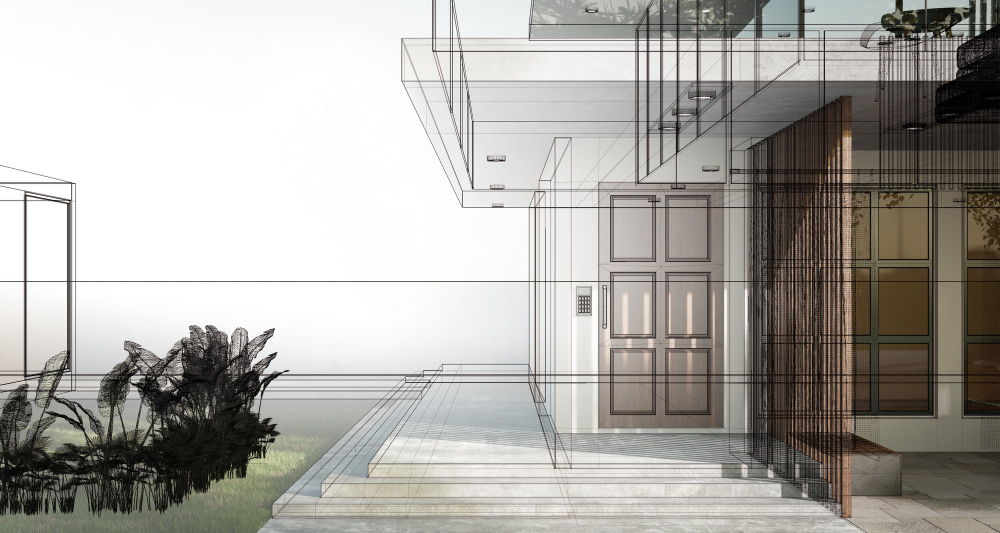It combines creativity with technical knowledge, critical thinking and social awareness. Architects design homes, schools, offices, museums and public spaces that shape how we live, work and interact. If you’re interested in design, enjoy solving problems and want a career that blends art and science, Architecture could be a great choice.
What Is Architecture Like at University?
Architecture degrees are intensive and varied. You’ll learn to design buildings from concept to construction, exploring how to meet the needs of users, respond to environmental issues and create spaces that improve lives. The course includes architectural design, history and theory, structural engineering, construction technology, and environmental design. A large part of your time will be spent in studio, developing projects and presenting ideas through models, sketches and digital drawings. You’ll also be expected to think critically about society, culture, sustainability and the built environment.
How Long Does It Take and What Are the Options?
To become a qualified architect in the UK, you usually need to complete three stages. First is a five-year academic route, which includes a three-year undergraduate degree (Part 1) followed by a two-year master’s (Part 2). In between and after these, you complete paid work placements and finish with a final exam (Part 3) to become registered with the Architects Registration Board (ARB). Some universities offer integrated programmes that combine Part 1 and Part 2 over five years. There are also alternative routes such as apprenticeships and part-time study for those already working in practice.
How Will You Be Taught and Assessed?
You’ll learn through design studio projects, lectures, seminars, group work, technical workshops and field trips. Much of your assessment will be based on your design portfolio, models and visual presentations. You’ll also write essays and technical reports and may take part in crits, where you present your work to tutors and peers for feedback. Time management and resilience are important as Architecture can be demanding in terms of workload.
What A Levels or Subjects Do You Need?
Most universities require:
Maths or a science subject — often preferred but not always essential
Art or Design Technology — helpful for building a strong portfolio
A creative and technical mix — ideal for architecture’s blend of skills
A portfolio is usually required, especially if you’re applying with an Art or Design background. The portfolio should demonstrate creativity, spatial awareness, drawing ability and a curiosity about design and the built environment. Some universities may ask for an interview or written statement about your interest in architecture.
What Skills Will You Develop?
Architecture degrees help you become a skilled designer and problem-solver. You’ll gain:
Design thinking and visual communication
Drawing, model-making and CAD software (like AutoCAD, Rhino, SketchUp)
Understanding of structure, materials and environmental performance
Historical and cultural awareness
Project management and collaborative working
Research and presentation skills
Critical thinking and creativity
These skills are valuable not only in architectural practice but also in wider design, engineering and planning fields.
What Can You Do With an Architecture Degree?
The most common route is to become a qualified architect, but your degree also opens doors to a wide range of creative and technical careers. Options include:
Architect or architectural assistant
Urban designer or town planner
Interior or landscape designer
Sustainability or environmental consultant
Heritage conservation officer
3D visualiser or modelmaker
Set or exhibition designer
Construction project manager
Some graduates move into further study in design, engineering, art or environmental disciplines. Others use their creative and analytical skills in roles such as branding, consultancy, or even tech and UX design.
Studying Architecture Abroad
Studying Architecture internationally can give you exposure to different building styles, design philosophies and regulations. Here's what to expect in different regions.
USA
In the US, most students study a four-year bachelor’s degree (BArch or BA in Architecture), then complete a Master of Architecture (MArch) to qualify. Schools like MIT, Columbia and UCLA have global reputations. Accreditation is through NAAB and includes internship and licensing exams. US programmes are known for blending theory with digital design and innovation.
Canada
Canadian universities such as the University of British Columbia and McGill offer professional architecture degrees. You’ll typically need to complete a pre-professional undergraduate degree followed by a professional MArch. Programmes focus on sustainability, community design and integrated practice.
European Union
In the EU, many architecture degrees are taught in English, particularly in the Netherlands, Spain, Germany and Italy. Dutch universities such as TU Delft and Eindhoven are known for modern design and international students. Courses are often five years and comply with EU standards for professional registration.
Australia
In Australia, students complete a three-year Bachelor of Design or Architecture followed by a two-year MArch. Institutions like the University of Melbourne and UNSW offer strong programmes with a focus on sustainable design and the Asia-Pacific region.
New Zealand
The University of Auckland and Victoria University of Wellington offer architecture degrees that combine design creativity with technical knowledge. Students often study a Bachelor of Architectural Studies followed by a Master of Architecture to register professionally.
Always check if the degree is accredited in the country where you plan to practise, as each has its own registration process and requirements.
Is Architecture the Right Course for You?
Architecture is a great choice if you enjoy creative thinking, solving real-world problems and shaping the future of how people live. It suits students who are imaginative, detail-oriented and motivated to work on long-term projects. The degree is demanding but rewarding and leads to a respected and versatile career. Whether you want to design homes, cities or sustainable spaces, a degree in Architecture gives you the skills to make a lasting impact on the world around you.





